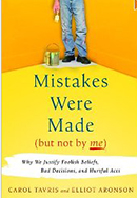Posted March 23, 2011 by The Coaching House Ltd.
Michael, my prospective son-in-law, works in the customer service department of an auto collision shop. Recent repairs to the road in front of the shop involved the digging of a deep trench to facilitate underground pipe repair. Steel plates were placed over the trench to accommodate cars getting in and out of the shop. Late one afternoon, repairs completed, a concrete truck and several workers arrived to fill in the trench. A steady stream of cars continued to enter and exit the facilities over the steel plates, and the drivers waved or nodded courteously to the concrete workers as they steadily filled in the trench. That is, continued to exit and enter, until the green Volkswagen Beetle, whose driver was apparently distracted, confused or unclear — cell phone perhaps?? failed to take advantage of the steel plate access ramp and drove straight into the freshly poured concrete. Stunned, the concrete workers stopped and gaped as the Beetle’s front end sank rapidly.
Seeing this disaster unfolding, Michael and a couple of other guys in the shop dashed out to help. Wading into the concrete, they hoisted the front end of the beetle and tried to maneuver it backwards. Heaving, slipping (and no doubt muttering expletives), they managed to lift and shove it to safety. Gasping for breath, shoes and trousers covered in concrete, they turned as the driver opened his car door. Expecting a rueful shake of the head, and words of gratitude for their quick response, their mouths dropped open as he emerged shouting, threatening and accusing the shop workers of stupidity and incompetence. His fault? Surely you’re joking! Whose fault? The owners of the shop who were idiotic enough to have a trench in front of their shop. An uproar ensued.
Why is it, that when we are confronted with information that clearly shows that we are wrong, or have done something foolish, hurtful or harmful, we are so reluctant to change our minds, even when changing would lead to a better course of action and outcome?
This is the question authors Carol Tavris and Elliot Aronson set out to answer in their book “Mistakes Were Made, (but not by me).” and in an interview of Carol Tavris by Ben Dean, PhD of Mentorcoach, last November.
We humans find it tremendously painful to hold two ideas, or an attitude and a behaviour, that conflict with each other. So painful, in fact, that we quickly move to dismiss one or the other. This discomfort is cognitive dissonance. Take the proverbial smoker, who knows that smoking is hazardous to his health, yet continues to smoke. Knowledge and behaviour are in conflict, so he must either abandon the behaviour or dismiss, discount or rationalize the information. Changing the behaviour is very difficult – no argument there. Dismissing the information is much more appealing. “My life may be shorter, but I’ll be happier and thinner.” he proclaims. Or he trots out the interesting, but irrelevant, “My grandfather smoked ’til he was 85 with no problems, but did you hear about that guy who died from a heart attack while jogging?” Sound familiar?
Maintaining our glowing self-concept is where dissonance really becomes painful. When presented with evidence that we have behaved like jerks, we must either change our self-image (not!), or, you guessed it, dismiss the behaviour.
Then how can we help ourselves and others tolerate the pain of cognitive dissonance rather than move down the rocky road of justification?
Shimon Peres, former Prime Minister and President of Israel was asked how he felt about former US President Ronald Reagan’s acceptance of an invitation to attend a state event in Bitburg, Germany where Reagan went to a cemetery to lay wreaths. It turned out that 47 Nazi SS officers were buried there, so an enormous public hue and cry developed. Peres’ response was, in effect
“When a friend makes a mistake, a friend remains a friend, and a mistake remains a mistake.”
This is how we do it. Call it the Peres Skill. Articulate the two ideas that are in conflict and causing us pain. Hold the two ideas separate. We don’t have to get rid of the friend, and we don’t have to minimize the mistake. We can then work on resolving the painful idea – that a mistake has been made.
Cognitive dissonance is a very powerful theory, and one that we can use to our benefit. Through the work of Elliot Aronson, Carol Tavris and others, we have information from over 3,000 studies of how the mind works and processes information, both reasonably and unreasonably. The more we understand the barriers to thinking critically and dispassionately, the better equipped we are to compensate for our faulty wiring. All drivers accept they have a blind spot. Let’s accept that we have mental blind spots, too. By acknowledging their presence, we can correct for them.
When we find ourselves tempted to buy a copy of Mistakes Were Made, (but not by me) for the education and benefit of those with whom we are in disagreement, perhaps we can pause and reflect – could it be me?? Is it possible that I might have had something to do with the issue? In the words of Miss Piggy: “Moi”??

